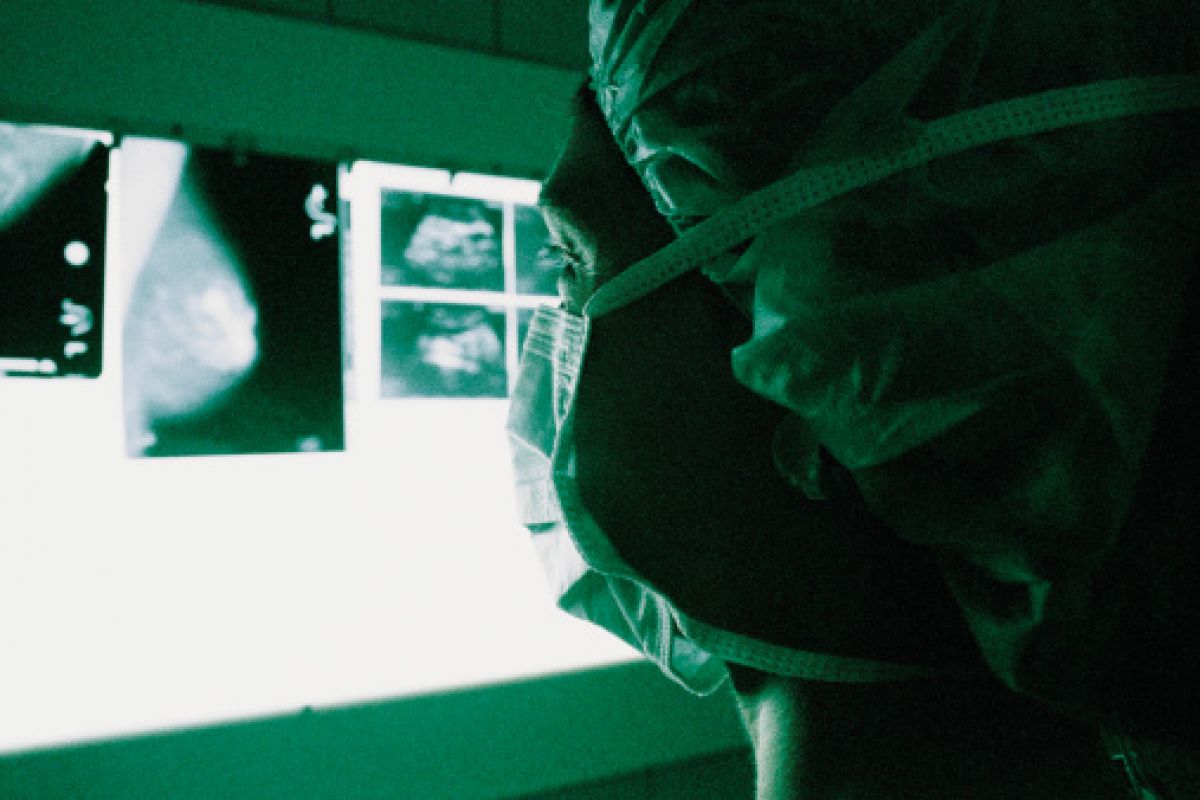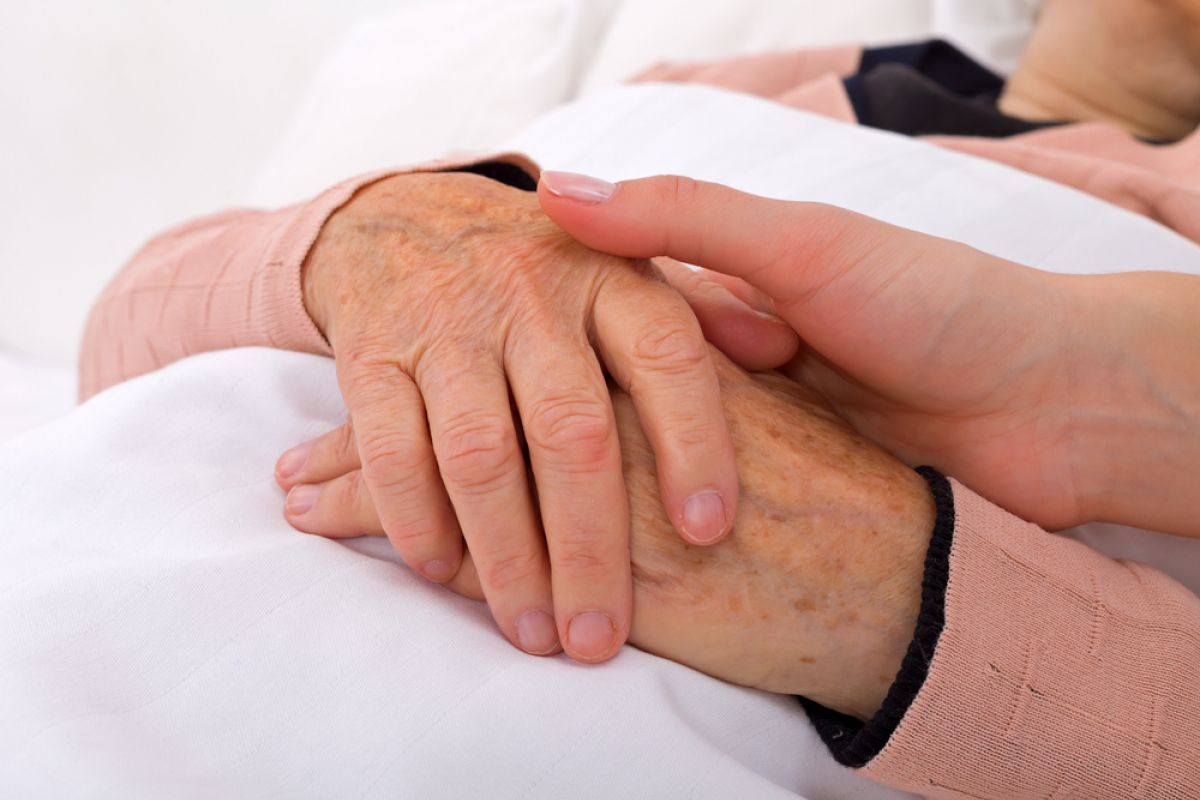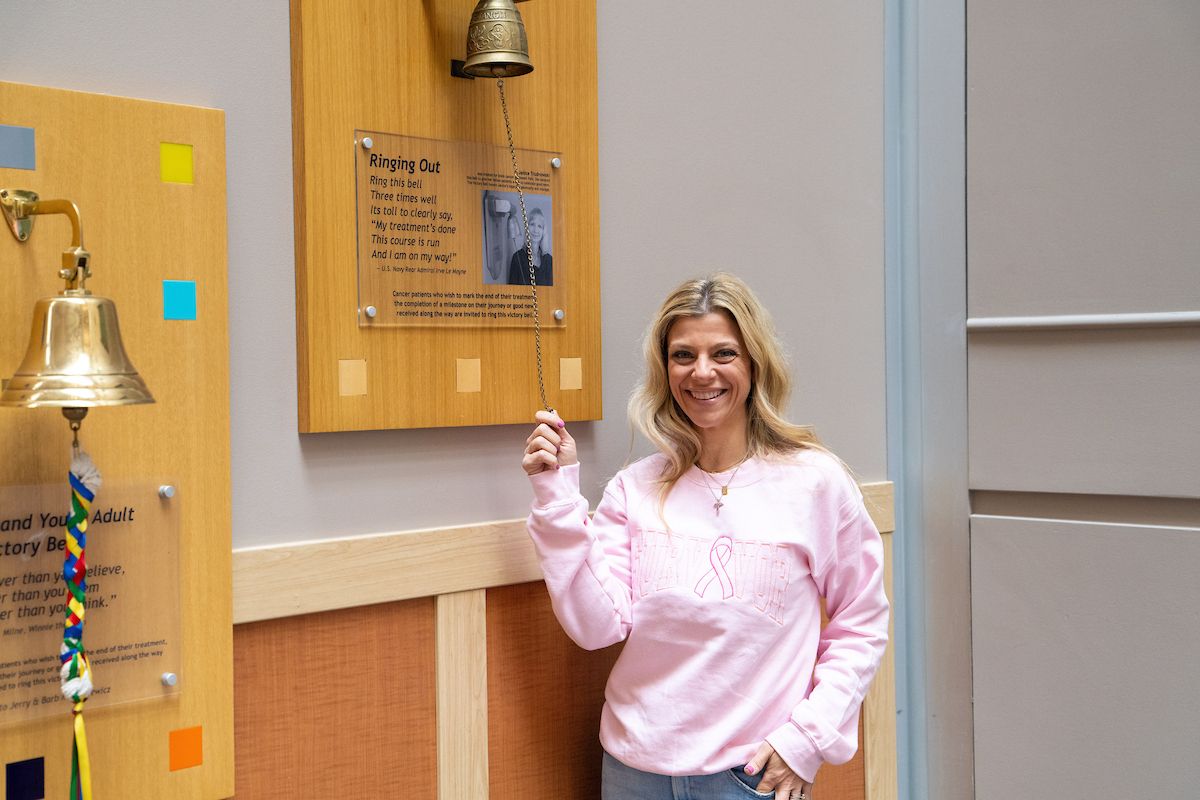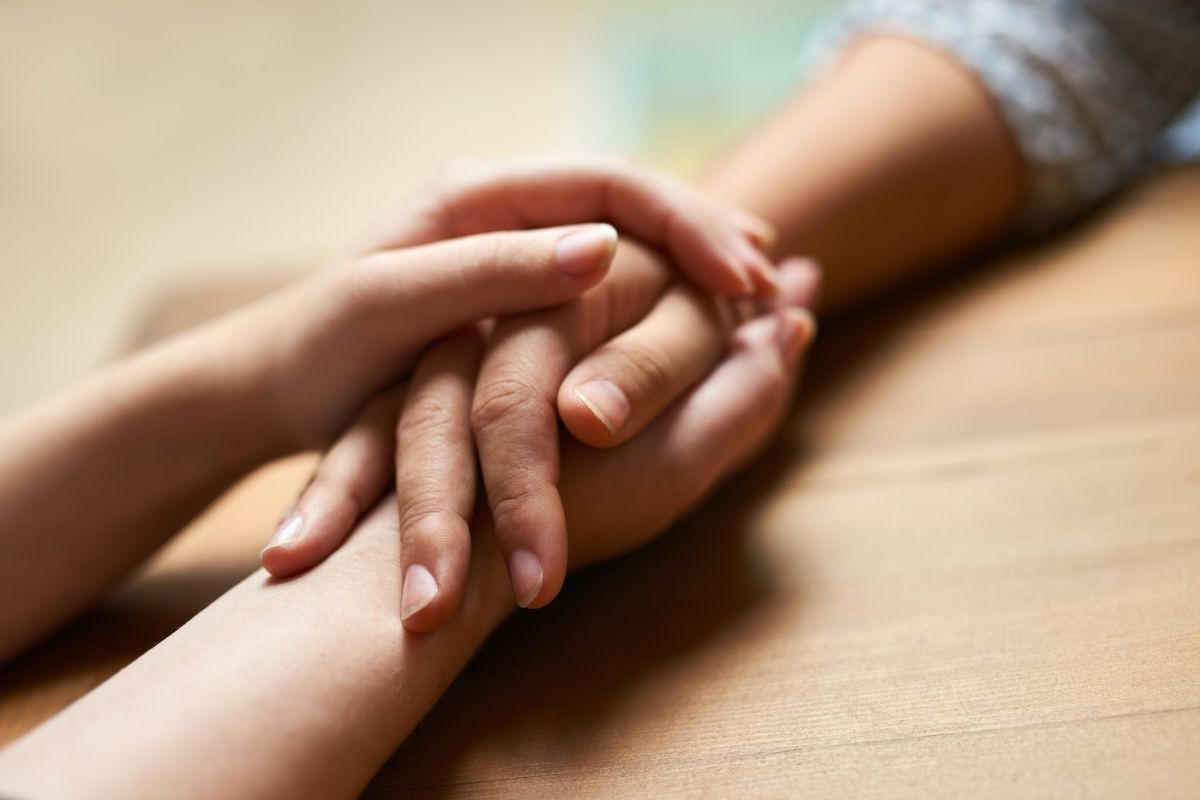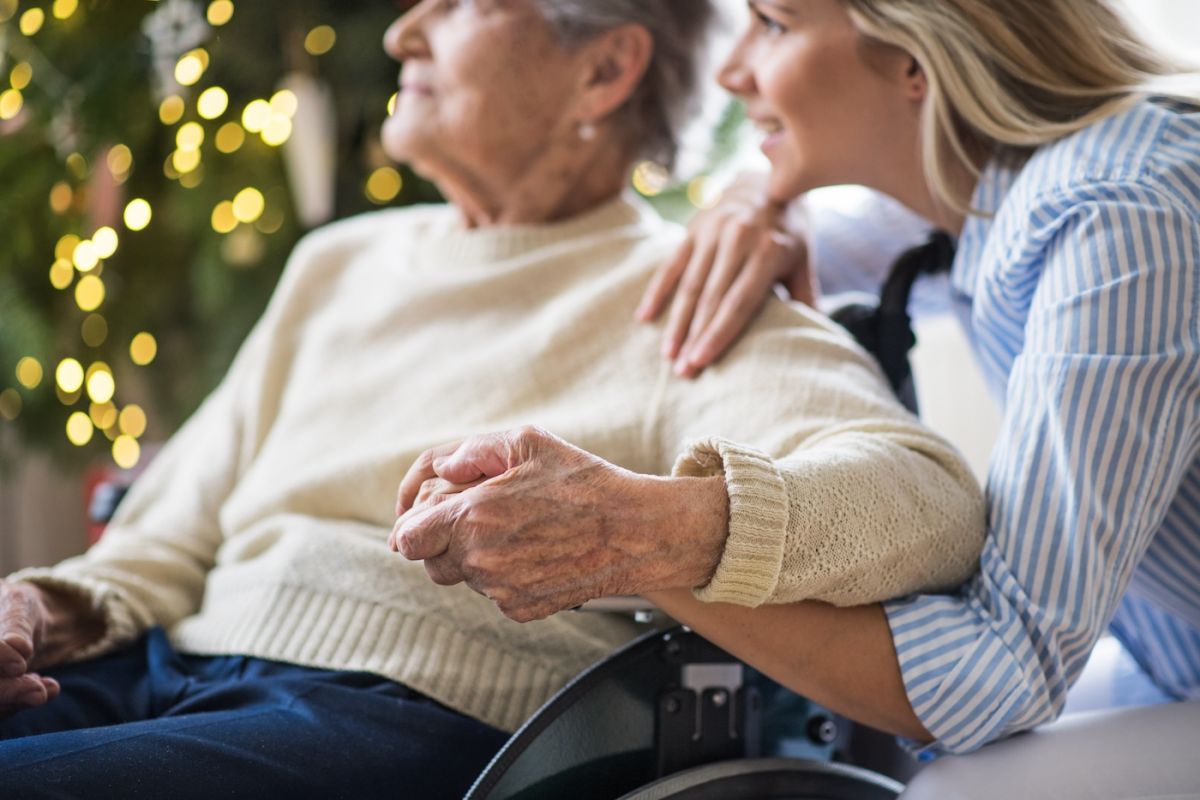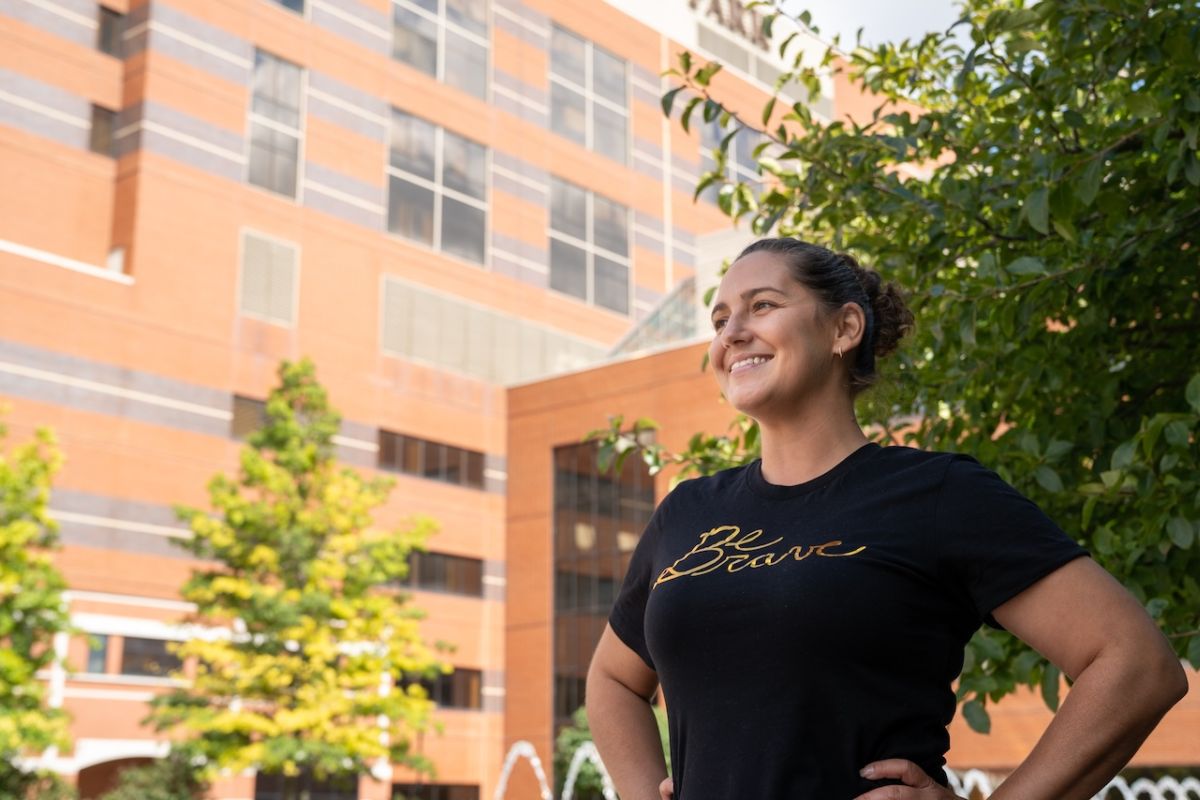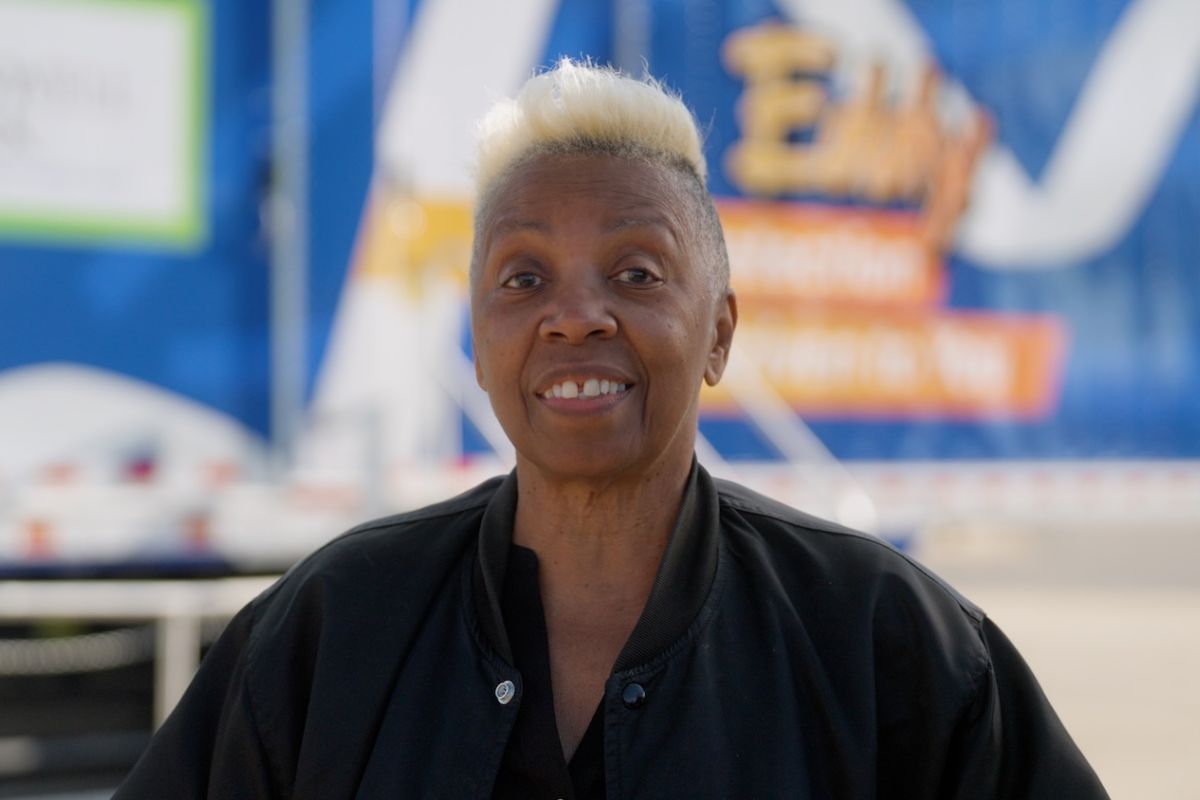Article
Lumpectomy vs. mastectomy
Article
What is watchful waiting for lymphoma or chronic leukemia?
Article
Podcast episode: When a doctor becomes a cancer patient
Article
Supportive and palliative care enhances quality of life
Article
14 ways to help a cancer patient during the holidays
Article
Can you be too old for a stem cell transplant?
Article
Using art to cope: Heather's story
Article
Roswell Park is recruiting community board members
Article
